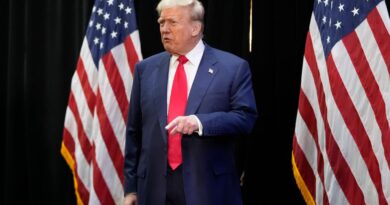Honoring MLK Day: Celebrating the Hero and His Beliefs

If Martin Luther King were alive in 2025 to mark his 96th birthday, what reflections might he have on the divisive racial climate in his country?
Black Americans still confront significant disparities. The alarming rates of crime victims, disproportionately affecting black individuals, stem from misguided progressive policies concerning public safety.
Moreover, the deliberate neglect of public schools, once a vital pathway for black social advancement, is troubling; standards have been abandoned to obscure the shortcomings of unionized educators in providing effective instruction.
Nonetheless, America today is markedly different from the nation that witnessed King’s tragic assassination in 1968 at the young age of 39.
We’ve seen a black American president, Barack Obama, serve two terms, and Kamala Harris, a black vice president, emerge as her party’s presidential nominee — achievements King may have believed his own children would never experience.
Black Americans are increasingly represented in high-ranking positions within the Cabinet, the Supreme Court, and both houses of Congress, as well as among governors. Today, race is no longer a hurdle at the polls or in holding elected office.
This progress would likely bring joy to Dr. King, as it has been a long journey, catalyzed by the civil rights movement that fundamentally reshaped America’s collective mindset.
Originating in the Southern churches, the movement challenged America’s moral fabric through nonviolence, moral authority, appeals to faith, civil disobedience against unjust laws, and the demand for full equality.
King achieved his objectives not through force but through persuasion — showcasing the frequent brutality of those defending injustice. It’s not surprising he ascended into the pantheon of American heroes for what he accomplished in just 13 years of public life.
However, he would likely be troubled by the state of America today, not only due to the persistent injustices.
He would be saddened to see that while young black Americans are no longer barred from attending school, they are often deprived of a quality education.
It’s likely he would be disheartened by current conversations surrounding race, the difficulty of engaging in honest discourse, and how too many hastily label dissenters as racists.
He would probably celebrate the fervor of the Black Lives Matter movement but would also express strong criticism toward its leaders for misusing the donations raised in the name of justice and neglecting their moral duty to abjure violence that undermines their mission.
A proponent of Israel, he would be deeply concerned about the distancing of many former allies from the Jewish state, especially amid the resurgence of antisemitism on campuses and streets nationwide after October 7—an event he might have stood alone in condemning among his leftist counterparts.
Lastly, he would surely be disheartened that we have yet to fully actualize his dream of judging people solely “by the content of their character” and “not by the color of their skin.”
Indeed, the excessive focus on racial grievances is central to the Diversity, Equity, and Inclusion movement, which categorizes whites as oppressors and blacks as perpetual victims, incapable of success without affirmative action against whites (and Asians).
Thus, we believe King would embrace the dismantling of the DEI framework throughout corporate America and the Supreme Court’s ruling promoting fairness in college admission processes.
His message was one of universal equality and dignity for all: “Let us not satisfy our thirst for freedom by drinking from the cup of bitterness and hatred.”
We honor him not only for the goals he pursued and largely achieved but also for a vision the nation continues to endeavor to fulfill.
It is easy to overlook the aspects that made him controversial: his stance against militarism and his assertion that America was “the greatest purveyor of violence in the world today.”
Ultimately, Martin Luther King’s legacy lies in his ability to combat injustice by appealing to the highest aspirations of the American people. This is why he is justly celebrated today.



